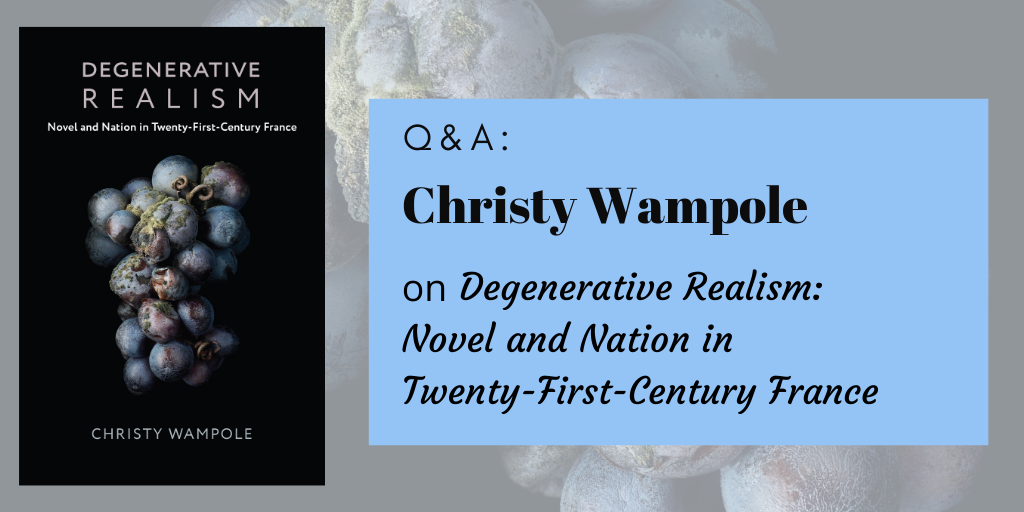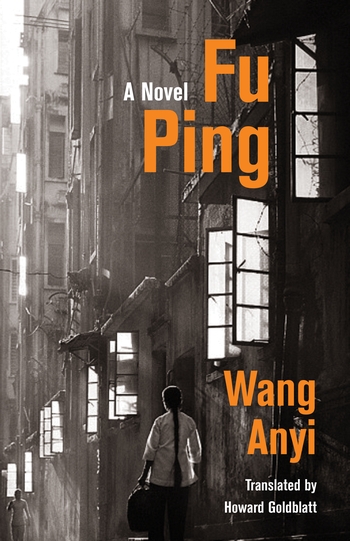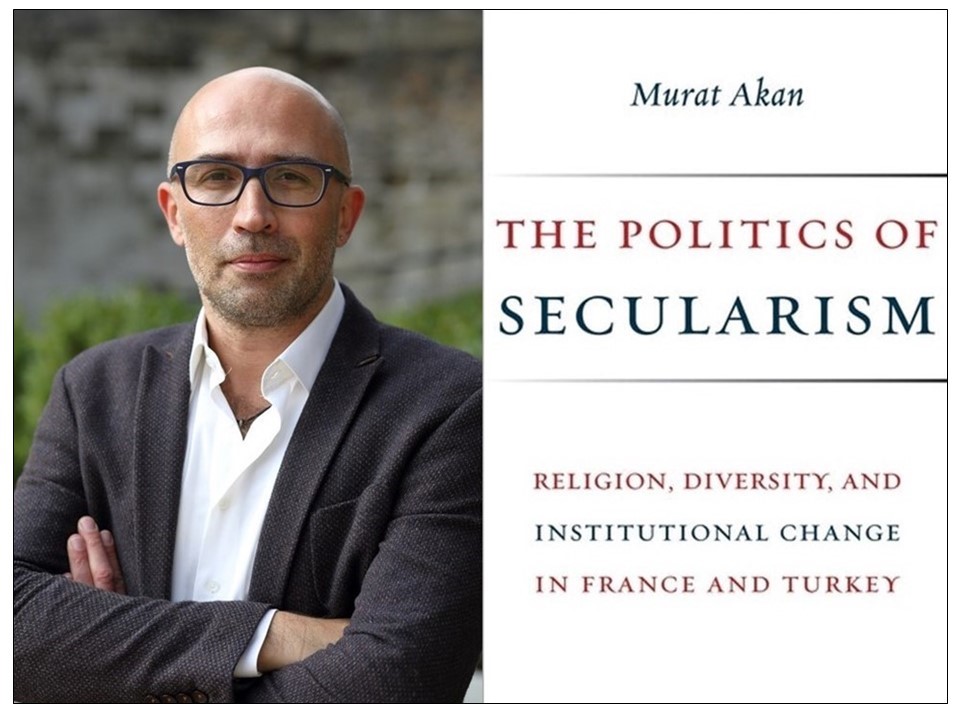Q&A: Christy Wampole on Degenerative Realism: Novel and Nation in Twenty-First-Century France

“One of the smartest books I’ve had the pleasure to read in recent years. Compelling, stimulating, far-reaching, and indispensable. Degenerative Realism is a rich, illuminating concept, plugged into the French national psyche while capturing the zeitgeist of our globalized economy and full of potentialities for related fields. A must-read in a world caught between alternative facts and dire predictions.”
– Philippe Met, University of Pennsylvania
In Degenerative Realism: Novel and Nation in Twenty-First-Century France, Christy Wampole analyzes a new strand of realism in the contemporary French novel, one that sees Western civilization as a living but moribund object. We spoke with her to ask her about its features and why this kind of novel has surfaced now:
Enter this week’s drawing for a chance to win a copy of the book.
• • • • • •
Q: What is degenerative realism?
Christy Wampole: I use the term “degenerative realism” to describe a set of patterns in the many contemporary French novels that narrate not only the decay of Western civilization but also the decay of reality. These novels, written by authors such as Michel Houellebecq, Frédéric Beigbeder, Yann Moix, and Aurélien Bellanger, also exhibit the weakening of realism as a representational practice in our world of fake news, capitalist duplicity, and the many political and cultural confusions brought about by globalization. Regarding form, these novels often begin in the realist mode, using the familiar conventions of description, dialogue, and narration we’ve come to expect from realist novels. However, this reassuring realism eventually breaks down as the novels collapse into dystopian horror, nihilistic sci fi, or utter unintelligibility. There is a direct correlation between the kind of societal degeneration described in the books and the degeneration of their form.
Q: What made you write Degenerative Realism?
CW: I began writing Degenerative Realism shortly before the American elections in 2016. The resurgence of the far right across Europe and in the United States was on my mind, and I kept stumbling across French novels that contained reactionary opinions, often couched in the speech of characters or in the narrators’ interventions. I’ve always been interested in novels that contain political commentary about the moment in which they were written because these books, I believe, hint at what’s happening in the collective subconscious whether or not people feel at ease addressing it directly. Around that time, when the term “fake news” was creeping into public discourse, I was thinking a lot about the strange paradox of the realist novel, which tries to convey truth through fiction. Is it possible that a fiction can deliver more truth than, say, a newspaper article? What happens to journalism, politics, and literature when no one can agree on what constitutes reality? I taught a graduate seminar in Fall 2017 titled Realism and (Post-)Truth, which allowed me to teach various theories of realism from the nineteenth century to today alongside each day’s mind-bending headlines about Trumpian deceit, Russian information warfare, and that foul swirl of falsehoods that circulate on social media. Needless to say, it was dispiriting to write Degenerative Realism, but I felt its claims were too important to abandon the project. The tendencies I identify in the contemporary French novel are almost certainly not limited to France, and I hope scholars who work on literature from other traditions will find its claims pertinent to their research as well.
Do you share the cynicism these books convey regarding the future of “Western civilization”?
CW: This is a difficult question. To answer it, one would have to believe that Western civilization is a stable concept with a clearly discernible history and set of features. I’m not sure Western civilization was ever real, so I can’t comment on whether I think it’s in danger. What is true is that humanity in general is having trouble adjusting to the seismic changes brought about by technology, new media and communication, globalization, economic flux, and the upheaval of social categories. Think about how various discourses on gender, race, social class, and regional or national identity have changed in just the last five years. The human brain seems incapable of adapting quickly to these changes, and the sense of alienation they produce seems to have left no one untouched. When I read the news—or the novels described in my book that ooze with anxiety produced by those same headlines—I feel a profound sense of pity for the human race, a species that is its own worst enemy. It is the kind of pity that clutches your heart and your stomach at the same time. On most days, I believe we’d all be better off if our thinking could just become more limber. Things would surely improve if we could derigidify our categories and face the aforementioned changes with a kind of joyful anticipation. On other days, I worry that we simply aren’t programmed to handle such rapid transformation and that something like tradition—with its sameness and slowness—is the only thing that brings solace to this pathos-scarred species called humanity. Although my book is a scholarly one, I tried to write in an essayistic, almost elegiac, style to convey the pity I feel for the human race.
2 Responses
Leave a Reply
You must be logged in to post a comment.






lol literal nonsense
so she commemorated and thus legitimized white male nationalism as a literary endeavor…. wow wtf